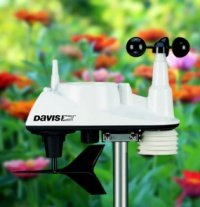What Is The Function Of A Glycol Temperature Probe?

Glycol-encased temperature probes are designed for temperature monitoring – particularly for vaccine and pharmaceutical refrigeration and storage. This article details the key functions of glycol temperature probes then explores five excellent examples of thermometers and data loggers that employ this technology.
About Glycol Temperature Probes
These scientific instruments are temperature probes encased in a glycol solution that acts as a buffer to prevent incorrect or unclear temperature readings.
|
The primary purpose of glycol buffers is to protect against sudden and sharp air temperature changes - such as fluctuations due to the opening or closing of refrigerator doors or normal defrost cycles. |
Functionality explained: Imagine you are monitoring the temperature of materials stored in an enclosed environment, such as a fridge. The opening and closing of the fridge doors will readily alter air temperature more quickly than the materials being monitored. Similarly, an open-air temperature probe will react to changes in air temperature more readily than a buffered glycol temperature probe.
|
TLDR (Too Long Didn't Read): A buffered probe will more accurately reflect the temperature of the items stored within a fridge or freezer, particularly vaccine vials, compared to an unbuffered probe. |
The Benefits of Glycol as a Buffer for Temperature Probes
- Glycol mimics the temperature readings of fluids commonly stored in pharmacy and laboratory refrigerators and freezers.
- Glycol’s low freezing point results in more accurate measurements in cold environments.
- Glycol buffering prevents inaccurate measurements and false alarms during rapid temperature fluctuations that pose no risk to stored goods.
- Glycol is non-toxic, making it highly versatile and suitable for use in restricted and controlled laboratories. It is a recommended buffer by the World Health Organization (WHO), Food and Drug Administration (FDA) and the Centers for Disease Control (CDC).
Thermometers and Data Loggers with Glycol Temperature Probes
Our Scientists have assembled examples of thermometers and data loggers utilising glycol-encased temperature probes for accurately monitoring the temperature of materials stored in fridges and freezers.

1. FlashCheck Certified Min-Max Alarm Thermometer
|
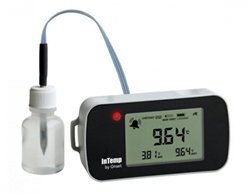
2. Cx400 Series Data Loggers For Vaccine Refrigerators
|

3. USB Vaccination Monitoring Kit
|
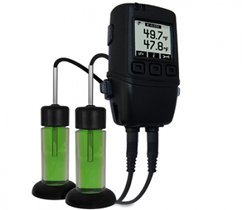
4. Dual-Channel GFX Vaccine Monitoring Kit with Graphic Screen and Audible Alarm
|
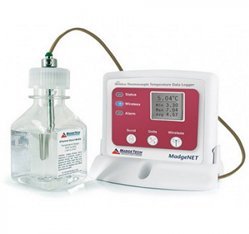
5. Vaccine Temperature Monitoring System (Vtms) Data Logger
|
Conclusion
Glycol temperature probes closely mimic the temperature storage properties of vaccines and pharmaceutical products, prevent false alarms caused by rapid air temperature fluctuations within the monitored environment, and meet best practice international health and safety standards. All these attributes make glycol temperature probes the preferred technology for monitoring laboratory and pharmaceutical fridges.
For more information on glycol temperature probes for vaccine and pharmaceutical monitoring, speak with an Instrument Choice Scientist! Call 1300 737 871 or email [email protected].
Also interesting
The Instrument Choice Team of Scientists regularly reviews new and popular products, so when searching for the perfect scientific instrument for your application, you can make more informed decisions.
This article evaluates the Kestrel 5200, a multi-purpose, robust and waterproof handheld environmental meter that measures over 15 essential weather parameters for monitoring work sites, conditions before pouring concrete, balancing HVAC systems, and spraying crops.
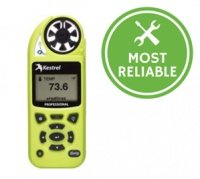
A home weather station provides hyperlocal weather information to help you plan your life. This article extends this theme and shows how to use home weather data and your weather station’s features to enhance the health of your plants in good conditions and avoid catastrophic damage when the weather decides to turn nasty.
Get the 3 Secrets – How to Enhance and Protect Your Home Garden with a Home Weather Station
